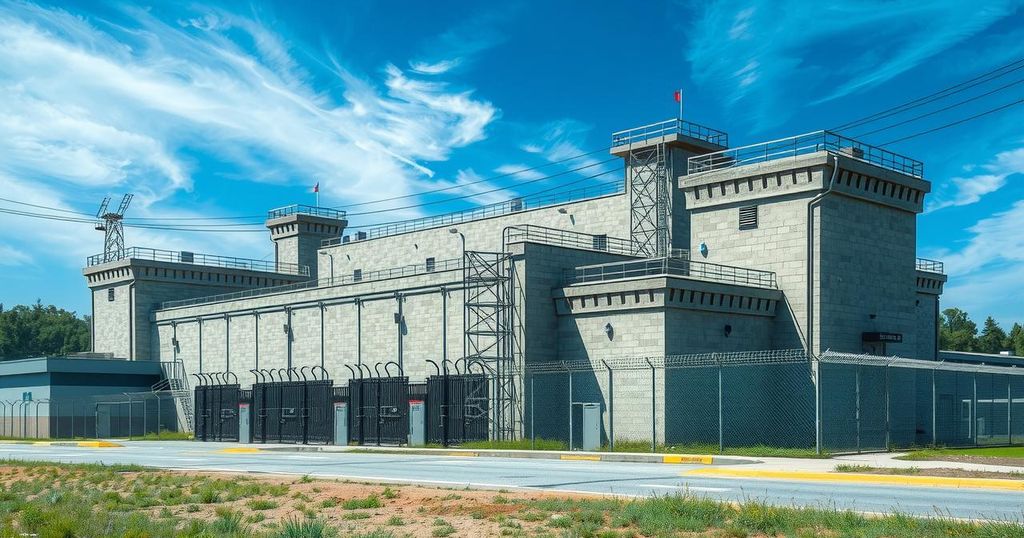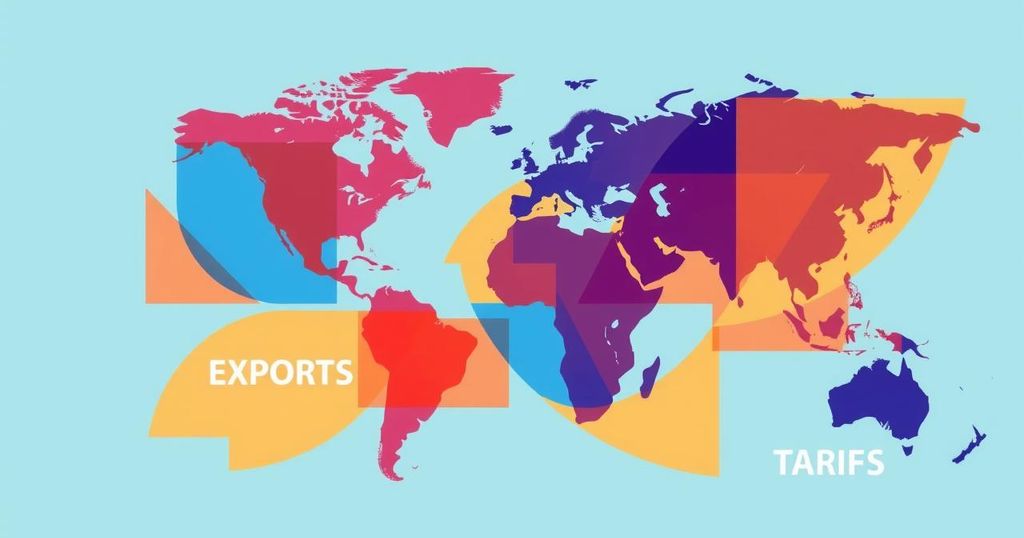Elections
Politics
AP, ARAGUA, ASIA, COLOMBIA, CUBA, DHS, EL, EL SALVADOR, FEDERAL COURT, GUN VIOLENCE, HOMELAND SECURITY, KRISTI NOEM, MEXICO, NAY, NAYIB BUKELE, NO, NOEM, NORTH AMERICA, PATROL, PHILIPPINES, POLITICS, SOCIAL ISSUES, SOCIAL MEDIA, SOUTH AMERICA, TE, TREN DE, U. S, UNITED STATES, VIOLENCE
Clara Montgomery
DHS Secretary Kristi Noem Visits El Salvador Prison Housing Deported Venezuelans
U.S. Homeland Security Secretary Kristi Noem toured a high-security prison in El Salvador housing deported Venezuelans alleged to be gang members. This visit aligns with the Trump administration’s claims of deporting dangerous individuals while raising significant concerns from human rights activists about the prison’s conditions. Legal challenges also loom over the deportations carried out under the Alien Enemies Act.
On Wednesday, U.S. Homeland Security Secretary Kristi Noem conducted a tour of a high-security prison in El Salvador that houses Venezuelans deported by the Trump administration. Noem’s visit included an inspection of crowded cell blocks, an armory, and an isolation unit within the facility, emphasizing the administration’s narrative of deporting individuals deemed as “the worst of the worst.”
This prison visit takes place amid ongoing legal battles where the Trump administration defends its actions in federal court, arguing the justification of deporting Venezuelans to a facility notorious for human rights violations. Many activists have raised concerns over the treatment and conditions faced by those held there.
During her tour, Noem observed a section of the prison accommodating Venezuelan inmates accused of gang affiliations. Witnesses noted that the inmates appeared subdued, silently observing Noem’s presence as she exited the cell area to the sound of men chanting.
In addition to her prison visit, Noem is reportedly scheduled to discuss the enhancement of deportation flights with El Salvador’s President, Nayib Bukele, during her three-day trip which also includes visits to Colombia and Mexico. This initiative aligns with Noem’s broader efforts to underscore strict immigration enforcement from her position.
The deportations stemmed from the invocation of the Alien Enemies Act, allowing the removal of noncitizens with minimal judicial oversight amid claims concerning gang threats from the Tren de Aragua gang. However, an appeals court recently upheld a ruling preventing further deportations to El Salvador under this act.
Uncertainties remain regarding the released status of deportees held in the El Salvador prison, officially named the Terrorism Confinement Center, as many do not have clear legal standings and have not been represented in court. Families of the deportees claim that numerous individuals lack gang connections and have no criminal history.
Compounding concerns, the prisoners are not granted any visitors, educational facilities, or rehabilitation programs, exemplifying the prison’s harsh environment which reflects President Bukele’s wider approach to crime in El Salvador. This facility reportedly has the capacity for 40,000 inmates, though prisoners endure severe restrictions with no means of reintegrating into society.
Additionally, video footage from the Salvadoran government highlighted the conditions faced by deportees upon arrival, showcasing individuals shackled and subjected to degrading treatment upon entry into the prison. The current status of 84,000 people arrested under emergency regulations for alleged gang ties raises significant questions about due process in the region.
In summary, Secretary Kristi Noem’s visit to the El Salvador prison housing deported Venezuelans highlights contentious issues surrounding U.S. immigration policy and human rights concerns. The justification for the deportations through the Alien Enemies Act faces legal challenges, and the treatment of detainees in El Salvador raises alarms among human rights advocates. Noem’s commitment to enhancing deportations amid escalating tensions in immigration enforcement reflects an ongoing dialogue regarding effective and compassionate handling of the immigrant population.
Original Source: www.pbs.org








Post Comment